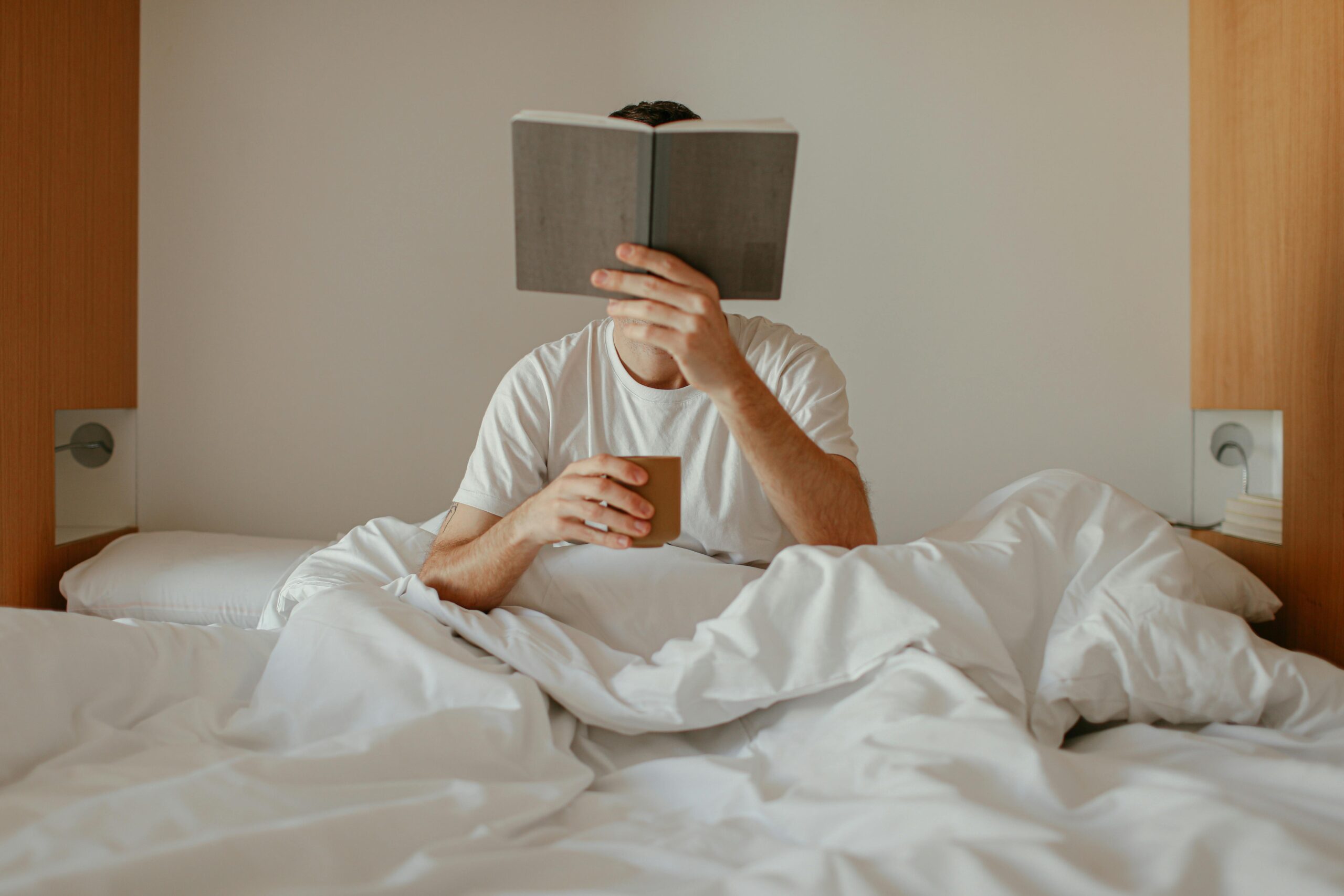A mindful morning ritual for anxious students is not a luxury- it’s a necessity. If you consistently wake up feeling flustered, wound up, or already running behind for the day, you’re in the company. For anxious students, the morning can be the most stressful moment of the day. Crafting a Calm Start: Your Mindful Morning Routine, you can turn those tight mornings into peaceful beginnings that set you up for success.
Let’s find out how you can establish a calm, focused start to your day, one that keeps you free of worry, enhances focus, and makes you feel more in control the minute you wake up.
Why Mornings Matter for Anxious Students?
Mornings are emotionally dense. For nervous students, they’re a countdown. Sleeping in late and rushing to class, skipping breakfast, or mindlessly scrolling your phone for what feels like an eternity can put your nervous system into overdrive before your day even begins.A mindful morning routine can turn this dynamic around. It takes back control from you, creates predictability, and stabilizes your emotions and thoughts. Instead of responding to stress, you set out to the day on purpose with calmness, clarity, and purpose.
What Is a Mindful Morning Routine?
A mindful morning practice is a series of intentional actions done in the morning that promote awareness, being present, and emotional health. It is not always complex or time-consuming. 20–30 minutes may be revolutionary. Crafting a Calm Start: Your Mindful Morning Routine, without judgment. When you bring this to your morning, you begin the day centered in yourself, rather than reacting to worry or distraction.

Advantages of Incorporating A Mindful Morning Routine For Students With Anxiety
Lower Morning Anxiety: Eases emotional imbalance and decreases cortisol (stress hormone levels).
Enhances Attention: Mindfulness exercises sharpen focus and clear the mind.
Strengthens Emotional Resilience: A calm start helps you manage stress much better throughout the day.
Increases Self; Confidence: Predictable routines lead to emotional stability, a sense of control, and a feeling of accomplishment.
Improves Overall Class Performance: Given emotional stability, information is better absorbed and a confident perform actively in class.
Building Blocks of a Mindful Routine for Anxious Students
Designing a routine does not require you to follow someone else WindWord steps to the letter. The optimal routines allow customization. Below, we have provided essential parts treasured to help you get started.
Hold off on reaching for your device. Instead, close your eyes, take a few deep breaths and center yourself.
Try This:
Place your phone out of reach so that it is across the room from your bed.
When you wake up, place one hand on your heart and the other on your stomach. Now take 3 deep breaths slowly.
Recall a small thing you are grateful for or something you are looking forward to.
Why it works: Giving yourself these moments aids in claiming control which delineates and disrupts the anxiety loop from starting.
2.Make Your Bed — It Really Helps
It might feel like a small thing, but making your bed in the morning can change your whole mood. It helps your room look clean. More than that, it makes you feel like you’ve already done something good today.
It’s a nice and easy way to start your day with a little win.
Bonus Tip:
While you fix your bed, say something calming to yourself like:
“Today, I choose peace over pressure.”
Even one kind sentence can help you feel better.
3.Take 5–10 Minutes for Calm
This step is very important if you often feel worried in the morning.
You don’t need anything fancy. Just a few quiet minutes can really help your mind feel better.
Try one of these simple things:
Take deep breaths. Slowly in… slowly out.
Close your eyes and notice how your body feels.
Use a guided meditation from YouTube or a free app like Calm.
Write 3 feelings you have and 3 things you want for today.
Why this helps:
It gives your brain a break. You stop thinking too much. You feel more peaceful and less anxious.
4.Slow Down During Washing Up
Don’t rush your shower, face wash, or brushing your teeth. These little things can actually help you feel more calm — if you pay attention while doing them.
Here’s how to be mindful during these moments:
Feel the warm water on your skin. Notice it.
Brush your teeth slowly. Try to stay present.
While washing your face, say something kind to yourself like,
“I am safe. I can handle today.”
It may sound silly, but it works. When you do small things with full attention, it helps your body feel relaxed and your mind feel steady
5. Don’t Skip Breakfast
Lots of students skip breakfast. It feels normal, but if you’re feeling anxious, it can make things worse. Your brain needs food to work properly.
Here’s what you can eat:
If tea or coffee makes you more nervous, leave it.
Have toast with peanut butter. Or a boiled egg. Or some fruit and yogurt. Nothing fancy.
Sit down and eat without looking at your phone. It might make you feel a bit calmer.
6.Think of One Thing for the Day
Pick one word or line that feels right today. Stop for a minute and think about it.
Like:
I’ll take it slow.
It’s okay if it’s not perfect.
Even if it’s a hard day, I’ll keep going.
You can say it in your head or write it somewhere. Whatever works.
7.Start Day with Something That Feels Good
What you take in first thing in the morning matters more than you think. Instead of jumping straight into the news, loud music, or endless scrolling, try beginning with something that puts your mind at ease.
Here are a few better ways to start:
A calm playlist that you enjoy
A short, uplifting podcast
Soft background music while you move around
Or just quiet — silence is powerful, too
The goal isn’t to be perfect. Just choose whatever makes you feel okay — not overwhelmed.
A Simple Morning Routine (30–40 Minutes)
You don’t need a strict schedule to have a better morning. Try this flow — or adjust it to fit your life.
Time What to Do:
7:00 AM: Wake up slowly. Take 3 deep breaths before anything else
7:03 AM: Make your bed. Stretch a little
7:10 AM: Sit quietly or breathe for a few minutes just be
7:20 AM: Shower, brush your teeth, get ready without rushing
7:35 AM: Eat breakfast without checking your phone
7:45 AM: Think about one simple thing you want from today
7:50 AM: Head out or start your work/study feeling steadier
You don’t need to follow every step. Even doing one or two regularly is better than trying to do it all once in a while. Keep it simple, and let it grow from there.
Adapting your routine to fit a student schedule:
If you are short in time or have early classes, then, shorten your routine up to 10 minutes. Just breathe, wash up, and eat something.
Do the past before night: Lay out clothes + prepare your bag or lunch.
Skip but don’t quit: If you miss a morning, don’t beat yourself. Return the next day.
Remember, the goal is progress not perfection.
Get enough sleep: A mindful morning starts from night before. Aim for 7-9 hours of sleep.
Cut down caffeine: Caffeine can boost anxiety in many students.
Additional tips for anxious students
Talk to someone, You don’t have to go through it alone. If you wake up feeling uneasy or heavy, don’t keep it to yourself. Say something. It could be a friend, a classmate, a teacher, or someone at home. Just getting the words out helps more than you think. You don’t need to explain everything perfectly. Sometimes, just being heard is enough.
Move a little, even if it’s just for a minute. If your body feels tense, try moving around a bit. You don’t have to do anything fancy. Walk across the room. Stretch your arms. Roll your neck. Open your window. Let some fresh air in. It can help you feel more present, even if your thoughts are racing.
Don’t make your mornings a to-do list
The more things you add to your routine, the harder it gets to stick to it and that can make you feel worse. Keep it light. Do what helps, skip what doesn’t. Drink water. Sit for a second. No pressure to be perfect.
Start with peace, not panic
You don’t need a perfect morning. You just need one that feels calm enough to get through. A few quiet moments can shift the rest of your day. You don’t have to do it all. Just start somewhere. And be kind to yourself while you’re doing it.

